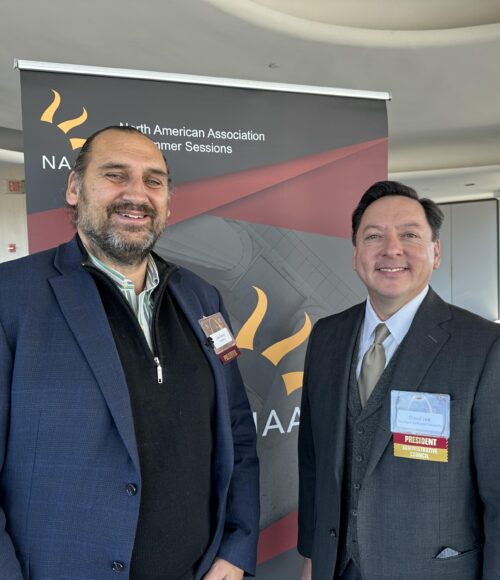NAASS and MindMax Sponsor Research to Gather Summer Sessions Data

NAASS and MindMax Sponsor Research to Gather Summer Sessions Data
Summer comes roaring back. That was the theme of the North American Association of Summer Sessions (NAASS) 59th annual conference in St. Louis, Missouri. As always, the conference was an excellent opportunity to network with higher education leaders involved in operating special sessions—most notably summer and winter sessions—inside their institutions.
Schools Face Challenges Integrating Special Sessions
Many of the special session leaders I spoke with are persevering in the face of ongoing challenges. While some units are generating impressive eight-figure revenues for their institutions, leaders are often working overtime to secure the high-level buy-in and resources necessary to integrate their programming. Common obstacles across institutions include:
- Access to instructors: enlisting enough faculty to support running the desired level of programming (which can involve extensive union negotiations, among other things)
- Advance notice: finalizing the courses that will be offered early enough to put the appropriate marketing programs into place; limited time frames can lead to underperformance in enrollment
- Integration: effectively integrating units within the larger institution, including making special session programming part of a four-year degree
Despite these challenges, many leaders of special session units have seen remarkable success. A critical skill for these unit leaders is the ability to influence without authority. They must work with a vast group of stakeholders to get what they need to accomplish their objectives. The best way to get that buy-in? Start with the raison d’être.
Start with the “Why?”
In my conference presentation, Anatomy of a Strategic Summer/Winter Session Plan, I stressed that leaders must start by addressing why winter or summer sessions are critical to their institution in the first place.
In many cases, the given raison d’être is generating revenue for the institution. But despite the importance of financial stability, revenue generation is not a compelling enough justification for special session programming. At a minimum, leaders must communicate how generating revenue via winter and summer sessions will help their school achieve its mission.
Summer and winter sessions often support students who are at greater risk of stopping out. They also provide the opportunity for students to take lighter courseloads during the year. There are a host of ways that special sessions can support a school’s mission. The more clearly special session leaders can articulate their “why,” the more likely they are to get the resources they need.
However, special session leaders often have major gaps when it comes to data about the impact of their efforts. That makes the conversation around winter and summer sessions more difficult. To remedy this situation MindMax teamed up with NAASS to cosponsor a joint research project that will gather meaningful data about the state of summer sessions.
NAASS and MindMax’s Summer Sessions Research Grant
NAASS and MindMax are offering a $10,000 research grant to study summer sessions. The study intends to quantify the contribution of summer programming to student success and the overall impact on the university. The recipient of the grant will seek to answer questions such as:
- What types of students are attending summer sessions?
- What are the outcomes of summer sessions, and how do those outcomes impact graduation, persistence, and student success rates?
- How are schools leveraging special sessions differently (e.g., first-year programming for incoming freshmen, dual enrollment for high school students, bridge programs for at-risk students)?
Based on my conversations at the conference, it seems that over 50% of students who graduate within four years enroll in summer programming at one point or another. The reasons vary from dealing with DFWIs to easing their load during the semester to ensuring they have the credits they need to graduate. Some students may even enroll in a summer session simply because they’re interested in the topic (imagine that!).
In other words, it’s clear that summer sessions are becoming a standard stop on the highway to earning a 4-year degree. The research that will come out of this study promises to provide compelling insights into how the inclusion of summer sessions plays out for schools and students.
It’s our hope that the data from the study will demonstrate how special sessions can help schools better serve their missions and contribute to this programming being integrated more seamlessly into institutions across the country.
If you or someone you know is interested in applying for the research grant, please submit an application by January 15, 2024.